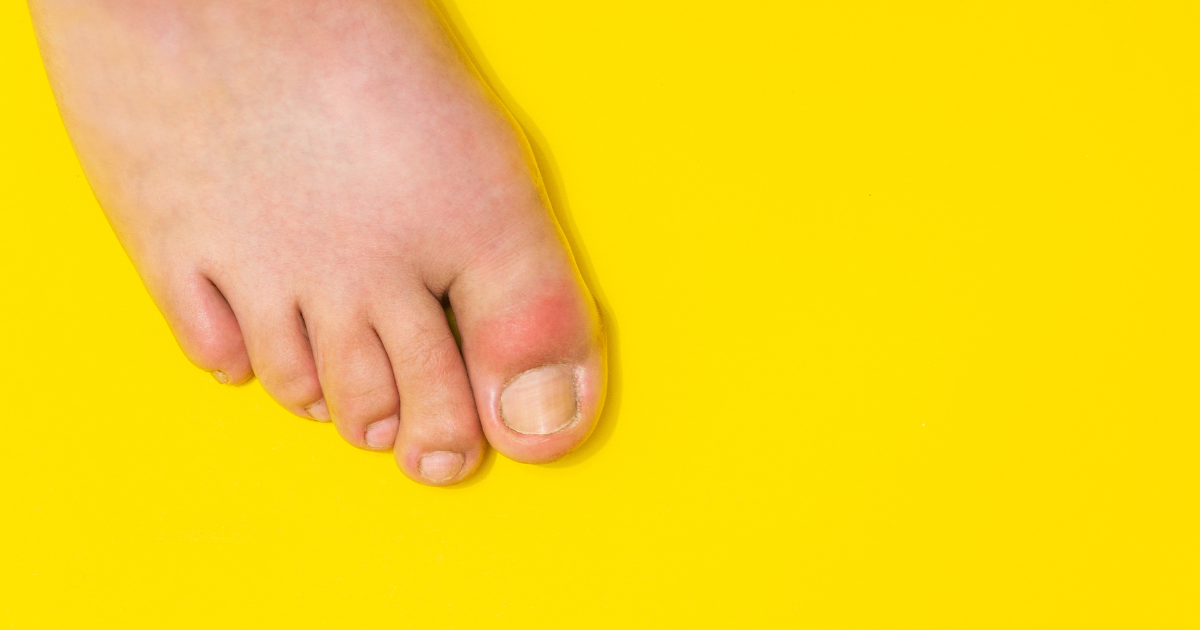Introduction
Gout is not just about painful joints — it also has a deeper connection with your kidneys. If you have experienced gout flares or have high uric acid levels, it is essential to understand how your kidney health may be playing a role. In this blog, we will explore the link between gout and kidney health, how one affects the other, and what you can do to protect both.
What is Gout?
Gout is a form of inflammatory arthritis caused by the buildup of uric acid crystals in the joints. Uric acid is a waste product normally filtered out by the kidneys. However, when there is too much uric acid in the blood (a condition called hyperuricemia), it can lead to sharp, needle-like crystals forming in joints, causing severe pain and inflammation.
Role of Kidneys in Uric Acid Regulation
Your kidneys filter uric acid from your bloodstream and remove it through urine. If the kidneys are not functioning properly, they may fail to excrete enough uric acid, leading to high blood levels and gout flares.
How Gout Affects Kidney Health
- Increased Uric Acid Load:
Constant high levels of uric acid can overburden the kidneys, making it harder for them to filter waste efficiently. - Risk of Kidney Stones:
Gout increases the risk of uric acid kidney stones, which are painful and can damage kidney tissue if untreated. - Chronic Kidney Disease (CKD):
People with gout are at a higher risk of developing CKD, and vice versa — poor kidney function raises the risk of gout. This creates a vicious cycle of inflammation and kidney stress. - Kidney Damage from Gout Medications:
Some anti-inflammatory medications used to treat gout can strain kidney function, especially in older adults or those already at risk for kidney issues.
Symptoms to Watch For
If you have gout, watch out for signs of kidney trouble:
- Fatigue or weakness
- Swelling in legs or feet
- Foamy urine or frequent urination
- High blood pressure
- Back or side pain
These symptoms could indicate early kidney damage and should be checked by your doctor.
How to Protect Your Kidneys if You Have Gout
- Stay Hydrated:
Drink plenty of water to help flush out uric acid through urine. - Limit High-Purine Foods:
Reduce intake of red meat, organ meats, shellfish, and sugary drinks — all of which increase uric acid levels. - Take Medications as Prescribed:
Medications like allopurinol or febuxostat help reduce uric acid levels and prevent flares. - Monitor Kidney Function:
Get regular blood and urine tests to track your kidney health, especially if you have long-term gout. - Avoid NSAIDs Overuse:
While NSAIDs relieve pain, frequent use can impair kidney function over time. Always use under medical guidance.
Diet Tips for Gout & Kidney Health
- Eat More: Low-fat dairy, cherries, fresh fruits, whole grains, and leafy greens.
- Avoid: Processed foods, alcohol (especially beer), sugary beverages, and high-purine foods like liver or sardines.
- Limit Salt: Excess salt can raise blood pressure, harming kidneys.
Frequently Asked Questions (FAQ)
Q: Can gout cause permanent kidney damage?
A: Yes, if unmanaged, chronic high uric acid can lead to kidney stones and damage over time.
Q: Do kidney problems make gout worse?
A: Yes, poor kidney function can lead to uric acid buildup, triggering more gout flares.
Q: Should I change my diet if I have gout and kidney issues?
A: Absolutely. A low-purine, low-sodium diet helps protect your kidneys and reduce gout flares.
Conclusion
The connection between gout and kidney health is strong but manageable with the right approach. Managing your uric acid levels, maintaining a kidney-friendly diet, and staying hydrated are all essential steps. If you have gout, talk to your doctor about regular kidney checkups to avoid long-term complications.





